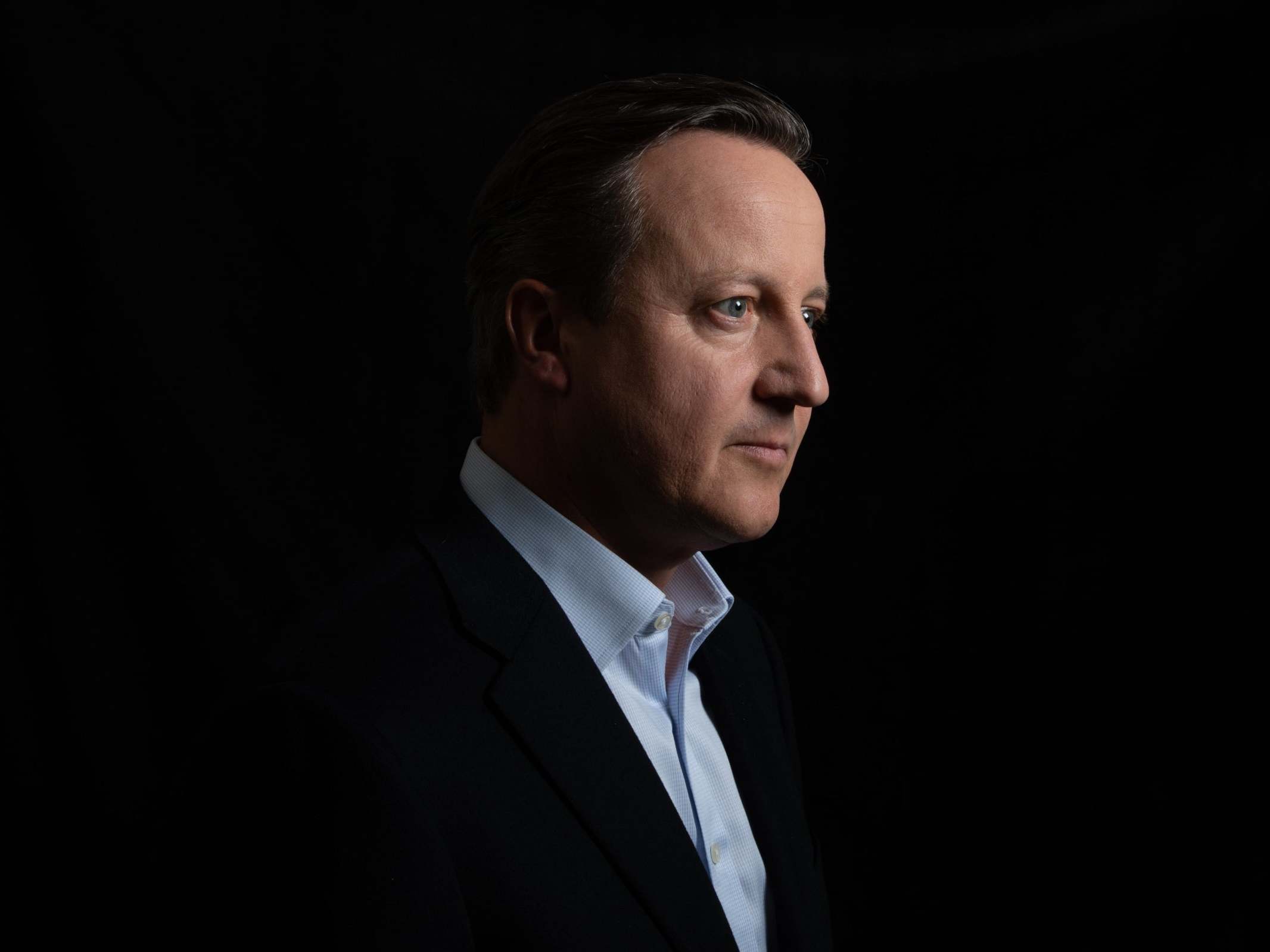The Independent's journalism is supported by our readers. When you purchase through links on our site, we may earn commission.
Political memoirs are usually vanity projects – and David Cameron’s attempt at recrimination is no different
Given their aptitude for spinning, dissembling and – naming no names – spouting outright lies, politicians as first-person narrators can hardly be deemed reliable, writes arts columnist Fiona Sturges


Your support helps us to tell the story
From reproductive rights to climate change to Big Tech, The Independent is on the ground when the story is developing. Whether it's investigating the financials of Elon Musk's pro-Trump PAC or producing our latest documentary, 'The A Word', which shines a light on the American women fighting for reproductive rights, we know how important it is to parse out the facts from the messaging.
At such a critical moment in US history, we need reporters on the ground. Your donation allows us to keep sending journalists to speak to both sides of the story.
The Independent is trusted by Americans across the entire political spectrum. And unlike many other quality news outlets, we choose not to lock Americans out of our reporting and analysis with paywalls. We believe quality journalism should be available to everyone, paid for by those who can afford it.
Your support makes all the difference.When senior politicians leave or are ejected from their jobs, there’s an order to what comes next. First comes the tear-stained speech, during which they will wax lyrical about the privilege of public service. Next, the holiday, where they can reintroduce themselves to the spouses and children whom they have barely seen since they were elected. Finally – and this is the crucial bit – comes lunch with a literary agent.
Rare is the major political figure who, disgraced or otherwise, doesn’t walk out of Westminster and into a six-figure book deal with a large publisher. A memoir provides the ultimate payday for former statesmen and stateswomen facing ill-defined professional futures. On paper, it all makes perfect sense. The author gets to tell their side of the story while revealing the human behind the diplomatic automaton (good luck with that, Theresa). As for the readers, who wouldn’t want to know what really takes place in the corridors of power: the backroom deals, the backstabbing and the suppressed scandals? Except that the political memoir rarely contains anything in the way of indiscretion or revelation. More often, they are vanity projects in which their authors get to settle scores and, reflecting on their low points, claim they were undervalued and misunderstood all along.
Which brings us neatly to David Cameron’s account of his premiership, For The Record, a book that reportedly earned its author an £800,000 advance, and was famously written in a handcrafted shepherd’s hut. Among the dispensed revelations is that our current prime minister Boris Johnson is a careerist who “didn’t believe” in Brexit, and Michael Gove is “disloyal” and “an ambassador for the truth-twisting age of populism” – factoids that we can file away in a folder marked “No s***, Sherlock”. More broadly, the book offers the usual cocktail of recrimination, self-justification and only mild regret (Cameron shares his distress at the outcome of the 2016 referendum but maintains that he was still right to call it).
Should we be surprised? Books by the big beasts of Westminster are apt to make headlines but are less likely to fly off the shelves. These groaning doorstoppers, with their cover portraits of the authors staring solemnly into the middle distance, invariably come with achingly pompous titles – think Gordon Brown’s My Life, Our Times and Tony Blair’s A Journey (in the latter’s case, said journey involved a shag with his wife, Cherie, at Balmoral, a mental image that I think we could all have done without).
Given their aptitude for spinning, dissembling and – naming no names – spouting outright lies, politicians as first-person narrators can hardly be deemed reliable. When a writer is interested primarily in cementing their legacy, forensic accuracy and insight are likely to be thin on the ground. Even if we are to accept that such books are highly subjective in their version of events, that doesn’t deal with the tedium of hearing about endless overseas summits, state banquets and cabinet meetings. Margaret Thatcher’s two efforts – The Downing Street Years and The Path To Power – were so dreary that cynical commentators doubted she had read them, let alone put pen to paper. This is why the more readable political memoirs are invariably by junior or peripheral government figures, or those with interests that go beyond the workings of Westminster.
The memoir by the Conservative MP-turned-novelist Edwina Currie was a surprise hit, owing in no small part to her admission of an affair with John Major. Tony Benn’s diaries were highly readable, as are Alastair Campbell’s, though of course diaries are an easier proposition, since they don’t require much in the way of reflection. The Alan Clark Diaries, which were split into three volumes, were so juicily action-packed, they were adapted into a TV series with John Hurt in the title role. Clark was a raconteur and a scoundrel with some very dubious political views, but he had two qualities that are crucial when attempting to record the story of one’s life: writing flair and personality. As Andrew Marr noted in his review of 2000’s Diaries: “Alan Clark wanted to make the world gasp and tremble. In the end, he made it gasp and giggle instead.”
Does this mean that it’s the more monstrous figures of politics whose books are likely to be most worth our time? Perhaps. Though whether we really want to help plump their bank accounts is a different matter. What is clear is this: if you want the lowdown on a political era, you generally can’t take the word of those at the centre of it. Memoirs can be fascinating, poignant and offer insight into the minds of their authors, but, like memory itself, they are easily influenced, one-sided and generally unreliable. Those written by political figures intent on getting the last word would perhaps be better categorised as fiction.
Join our commenting forum
Join thought-provoking conversations, follow other Independent readers and see their replies
Comments